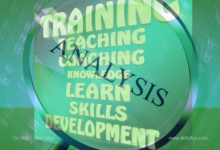
Core Leadership Competencies Help Leaders Adapt To Change, Take Risks, And Innovate
In today’s business world, organizations across the globe are transforming at an extraordinary pace. Most importantly, because of this shift, leaders must address multifaceted demands. Such as reducing costs but increasing innovation; thinking globally, acting locally; Achieve more with less. However, some challenges characterize leadership in the new age world, as organizations need influential leaders with core leadership competencies. Note that these competencies are essentially the skills, behaviors, knowledge, values , and abilities that define influential leaders and their ability to apply them to drive the organization’s performance. Thus, competencies help leaders by allowing them to create strategies to manage operations; make decisions and find solutions to unique problems; manage policy and influence stakeholders; Adapt to change, take risks, and innovate. However, organizations must frame their leadership competency frameworks to align business vision with leadership attributes to create competitive advantage.
Core Leadership Competencies
- Strategic mindset and vision: Leaders must have a strategic mindset and vision of what their team wants to achieve and how they plan to do it.
- Managing and implementing change: Managing change demonstrates the ability of leaders to communicate the need and rationale for change. So, when they implement the change. They realize how the change negatively affects the morale of the team and the organization.
- Flexibility: Flexibility is the competency that enables leaders today to easily lead through difficult situations. And recover from setbacks and manage emotions. It also determines their ability to see new opportunities in those situations.
- Team development: good leaders inspire and enhance team commitment and teamwork, as this helps organizations increase production and productivity. Those leaders who can build and nurture competent teams create learning opportunities for team members. And guide them to achieve their development goals.
- Decision-making: The effectiveness of leadership is represented in the ability to solve problems. And make intelligent decisions based on analyzing available data and drawing valid conclusions based on evidence and logical relationships.
- Social Intelligence: Social intelligence is considered one of the best predictors of intelligent and effective leadership that understands and deals with the behavior of others and different social environments.
- Authenticity: Real leaders build honest relationships with their teams and value their opinions, ideas, and suggestions. So, they are more accepting of their feelings, encourage them to be more open. And help them understand their value in the organization.
- Organizational Citizenship Behavior: Leading by example inspires others by demonstrating organizational citizenship behavior to promote positive and constructive employee behaviors.
- Conflict Management: A good leader manages conflicts by addressing and resolving conflicting interests among employees. In addition, he can instill trust, empathy, and understanding between the parties by managing conflicts effectively.
- Emotional Intelligence: Leaders with high emotional intelligence are more effective by effectively managing their feelings and the feelings of others. Knowing that they respect and understand the complexities of their feelings and understand how these feelings can affect others.
- Interpersonal: A leader with high interpersonal skills can respond to the needs and feelings of team members. And increase their performance in different situations.
- Understanding the influence of the external environment: A leader must be aware of different business trends. Also, he must understand the impact of the external environment. And be aware of all the policies and trends that could affect the organization.
- Managing Finance: The leader must understand the organization’s financial operations as they prepare, justify, and manage budgets. It also tracks expenses and uses the cost-benefit rule to set priorities.
- Fostering Innovation: Successful leaders foster a culture that encourages people to innovate through experimentation, to “fail fast” on new ideas, and to share what they have learned across the organization. Also, they approach issues differently, thinking outside the box and striving for continuous innovation.
- Coaching: A leader needs to be a good coach in various situations, not only for his team but also for his peers. They noted that he needs to build and maintain trust and strong relationships to foster a successful training relationship.
- People Management: A leader must manage people to build a strong team. He directs, motivates, and coaches employees to improve productivity and grow professionally.
- Managing Diversity: The successful leader values diversity and inclusion to lead diverse teams successfully. This builds a collaborative team culture and takes advantage of diversity to work effectively.
- Foster a culture of learning: Leaders who foster a culture of learning are drawn on past experiences. And open to feedback to learn from successes and failures because that makes them inspired and well-equipped in their professional development journey.
- Technology Management: Effective leaders keep abreast of technological developments and ensure access to and security of technical systems. They also use technology effectively in the workplace to achieve the best results.
- Capacity and expertise: Effective leaders need a certain level of capacity and knowledge in the field and organization they lead. This gives them a competitive advantage that helps them lead their team effectively.
- Courageous: Courageous leaders stick to their principles, are willing to innovate, take risks, and make changes, and they won’t give up when the going gets tough.
- Focus on results: Focus on results is a core competency focused on improving performance. And results promptly within the allocated budget.
- Managing ambiguity: Leaders who successfully manage ambiguity in unexpected situations are better equipped to deal with risk and uncertainty. Moreover, they know how to adapt to change and solve problems.
- Building relationships and alliances: Successful leaders benefit from developing alliances to build strategic relationships and utilize them effectively to achieve common goals.
- Practice Accountability: Outstanding leaders practice self-accountability for productive behaviors in the workplace. They also take responsibility for their mistakes and follow the applicable control systems.
The rapidly changing business world requires a different leadership response approach that can be achieved through core leadership competencies in the new era. Leadership competencies positively impact the workplace and help think about future business strategies and goals.



